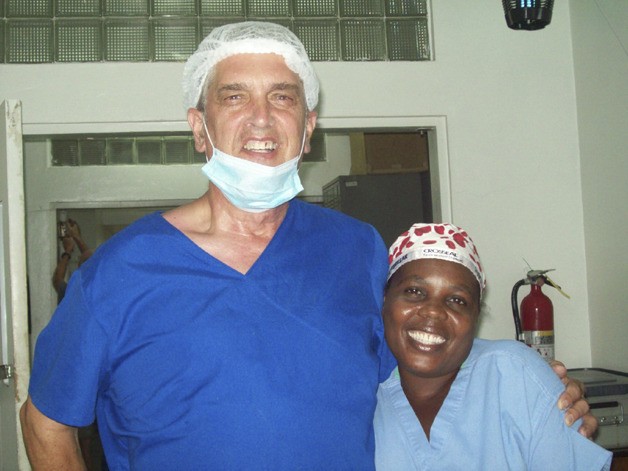Much has been accomplished, yet so much has to be done to restore tattered Haiti.
Ben Davis knows as much. The semi-retired physical therapist from Auburn recently returned from extensive volunteer relief work in a Caribbean country still reeling from the devastating blow of a January earthquake.
Nine months later, the demolished country remains very much on its knees, Davis observed, despite the outpouring of global relief.
“I have never seen such devastation,” said the 67-year-old Davis. “People are trying to go on with their lives.”
Little of the massive amounts of rubble has been cleared. Piles of garbage continue to line the streets in and around the capital city of Port-au-Prince.
Freshwater supplies are limited. Damaged infrastructure remains a problem. Roads and highways are passable but strained by heavy traffic, notably from the steady stream of overloaded aid trucks. Some streets are so rough that tires are taxed, punctured and blown, leaving abandoned vehicles roadside.
In many neighborhoods, flood-prone tent camps have replaced buried homes.
According to one relief agency’s account, roughly one in nine Haitians remains homeless.
“One of the photos Ben brought back got to me. It was of this little baby (outside a tent) crawling in the dirt,” said Charlene Davis, who stayed home during her husband’s three-week outreach effort. “They don’t have an everyday life.”
Few buildings are serviceable, many are condemned. In one community, a large church partially was resurrected so Haitians, dressed in their Sunday best, could attend services.
Makeshift schools are inadequate, overwhelmed by an influx of refugee students. Many Haitians cannot afford to send their children to private schools.
Beyond the collapsed ruins, there lies the human toll. The quake reportedly killed more than 230,000 people. Many more were seriously hurt or maimed.
Many life-torn Haitians remain in physical and emotional pain.
Such a plight was a call to arms for Davis, an educated and Army-trained licensed practical nurse who decided to help mend shattered lives.
He went on his own dime and time, under the auspices of Adventist Health International and Loma Linda University, which has long established a hospital and clinical care in Haiti and trained public health professionals there for decades.
Davis, who had expected to conduct physical therapy on amputees and the crippled, wound up helping doctors with orthopedic surgeries in the operating room.
There was no shortage of patients.
Some days were long, the work rewarding. Davis worked in MASH-like conditions at a partially-damaged hospital near the epicenter of the quake, west of Port-au-Prince.
“Some (patients) were never treated for fractures at the time of the quake, some had not been seen,” Davis said.
Davis did his part, soothing the pain by treating fractured bones from a fractured nation.
A nation on its knees faces an uncertain future in which solutions will be complicated and slow, Davis contends.
“Most of them are not looking to rebuild their houses because they’re afraid that another earthquake might hit,” Davis said. “A lot of work needs to be done. I’m not sure the locals are willing to do it. For one, nobody is paying them to do it, so it’s a survival mode.”
The situation has been difficult for Haitians trying to get by. The local economy is drenched with importation with little exchange of home-generated dollars.
“Most of the Haitians need to feel like they are accomplishing things,” Davis added. “Hospital volunteers and translators are paid $125 a month … but it’s costing them more to come into work than what they were earning. But they did it anyway because they felt like they were accomplishing something.”
The experience humbled Davis, a man of faith. He left with a greater perspective.
“It made me realize that family is more important than things,” he said.
Would he return?
“I would, if I had a reason,” he said with some hesitation. “All people need hope… that something is going to happen to make things better for them.
“Without a degree of hope, they would just go through the motions.”


